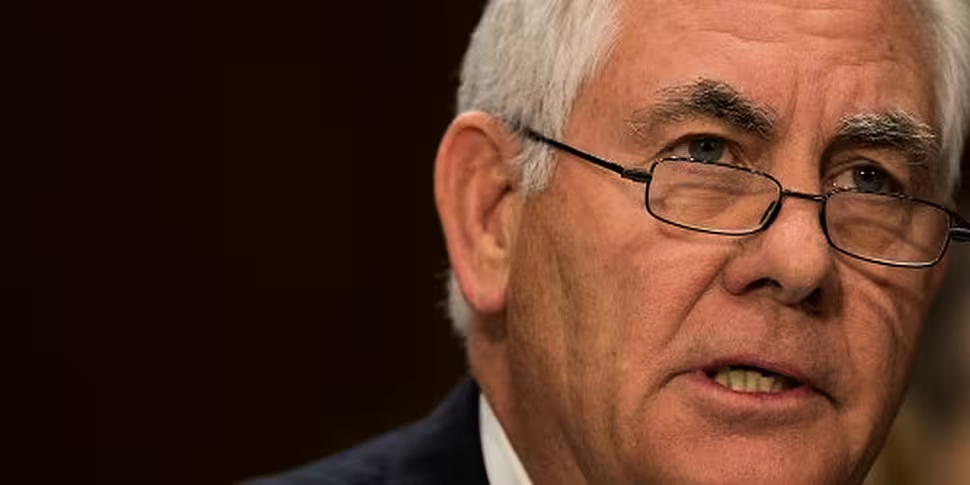The US secretary of state has condemned "just horrific" scenes during a visit to Myanmar for talks with Aung Sang Suu Kyi.
Speaking on Wednesday during a joint conference with the country's leader, he called for a impartial investigation into human rights abuses and for those who had committed them to be held accountable.
But he said the US was still evaluating whether it should use the term "ethnic cleansing" over the crisis and regarded levying sanctions against the state as "not advisable" at this time.
"We want to see Myanmar succeed," he said. "I have a hard time seeing how that helps resolve the crisis."
The top US diplomat did not rule out action, saying that targeted sanctions against individuals may be appropriate and committing to around $60 million in aid for refugees.
He confirmed a US commitment to transition in Myanmar and condemned attacks by Rohingya militant groups, which in August contributed to the escalation of crisis in the country's Rakhine state.
Myanmar leader Suu Kyi insisted that she has "not been silent" with regard to the violence and stressed rule of law in ensuring peace and stability.
She had tried not to set ethnic communities against each other, she said.
Mr Tillerson met Suu Kyi and Myanmar's military chief Min Aung Hlaing, amid a crackdown in the country's Rakhine state that has seen more than 600,000 of the minority Rohingya population flee to neighbouring Bangladesh.
The operation has been condemned as ethnic cleansing by monitors including Amnesty International and Human Rights Watch.
"The crisis in Rakhine state is one of the greatest challenges Myanmar has faced since the elected government came into office last year," Mr Tillerson said in Wednesday's conference.
"We are deeply concerned by credible reports of widespread atrocities committed by Myanmar's security forces and by vigilantes who were unrestrained by the security forces."
The US diplomat described discussions between Myanmar and Bangladesh as encouraging, urging Myanmar authorities to protect all within its borders and for the two states to cooperate on the repatriation of refugees.









